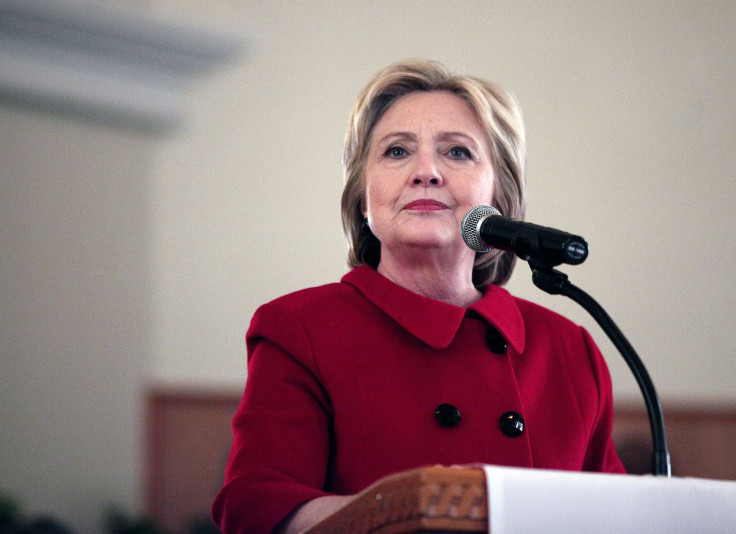Hillary Clinton Said Outsourcing ‘Benefited’ America After She Criticized Bush Officials For Saying The Same Thing

In advance of Sunday’s debate in Flint, Michigan, Hillary Clinton has promised to get tough on companies that offshore U.S. jobs, while Vermont Sen. Bernie Sanders has ratcheted up his criticism of her jobs record. Campaigning in a state battered by offshoring, he has keyed on Clinton’s support for trade deals that he says helped companies move jobs overseas, and he has pointed to a 2012 video showing Clinton telling an Indian audience when it comes to outsourcing American jobs, there have been aspects that “benefited” America.
In 2004, though, it was Clinton who was slamming outsourcing as she led Democrats’ criticism of the Bush administration. Back then, Greg Mankiw, President George W. Bush’s top economic adviser, touched off a firestorm when he declared “outsourcing is a growing phenomenon, but it’s something that we should realize is probably a plus for the economy in the long run.”
“Outsourcing is just a new way of doing international trade,” Mankiw said. “More things are tradable than were tradable in the past — and that’s a good thing.”
A few days later, Clinton took to the Senate floor to reject those comments.
“I do not think outsourcing American jobs is a new kind of trade,” she said. “I do not think we should be thinking of our people as commodities, and I certainly do not believe it is a good thing. If the other end of Pennsylvania [Avenue] believes it is a good thing to have companies shift jobs from America to the rest of the world, then maybe they do not have a clue about what it is going to take to bring jobs back to this country and create the kind of economic prosperity that will put our people back to work again.”
Clinton said the comments from Bush’s adviser represented “a strategy for decline. This is a strategy for the destruction of the American job market.”
She pledged to present a Senate resolution “to stand against this philosophy in the White House that turns a blind eye to the damage that is being done to the American economy: The loss of jobs, the loss of income, the loss of self-confidence and prestige that is now sweeping our land.”
The following day, Clinton introduced that resolution, which called on the Senate to “(1) oppose any efforts to encourage the outsourcing of American jobs overseas; and (2) adopt legislation providing for a manufacturing tax incentive to encourage job creation in the United States and oppose efforts to make it cheaper to send jobs overseas.” The measure was not successful.
Five years later, however, Clinton’s rhetoric shifted. In a 2009 interview with an Indian television outlet, she lauded President Obama for opposing efforts to protect domestic U.S. jobs, saying he was trying to “speak against protectionism and to make sure that our administration does not in any way give credence to it.” She also said while Americans were concerned with job losses, Obama administration officials were determined to avoid taking actions that might fundamentally alter international commerce.
“Outsourcing is a concern for many communities and businesses in my country,” she said. “So how we handle that is something that, you know, we are very focused on doing in a way that doesn’t disrupt the great flow of trade and services that go between our countries.”
Then came the 2012 comments that Sanders is now criticizing.
During her trip that year to India, Clinton was asked about job outsourcing, and replied: “Well, it’s been going on for many years now, and it’s part of our economic relationship with India. And I think that there are advantages with it that have certainly benefited many parts of our country, and there are disadvantages that go to the need to improve the job skills of our own people and create a better economic environment. So it — like anything, it’s about pluses and minuses.”
© Copyright IBTimes 2024. All rights reserved.






















